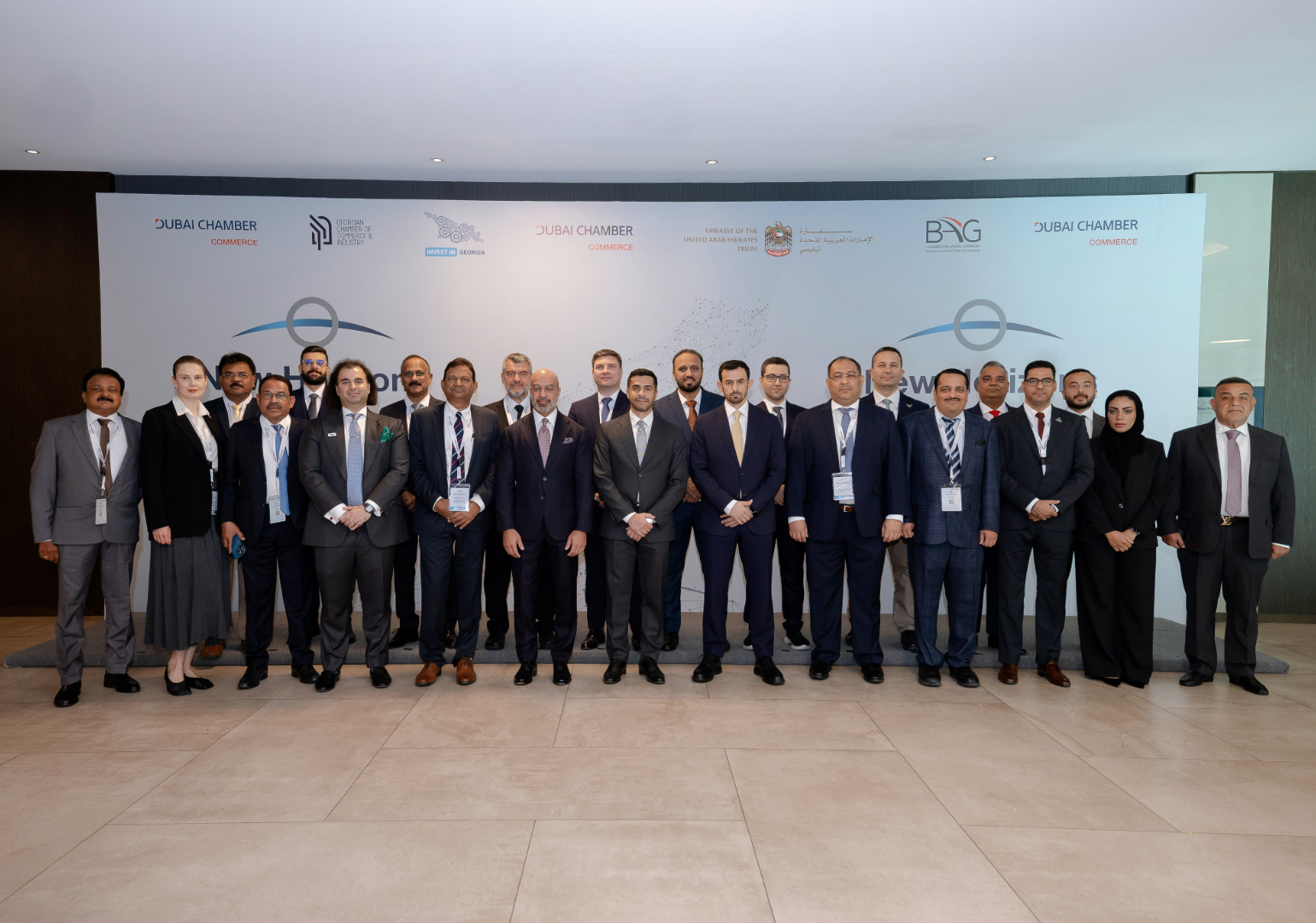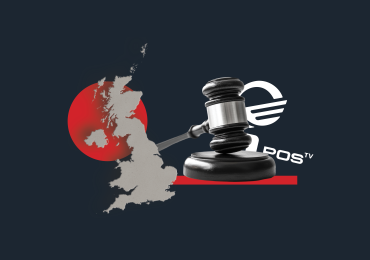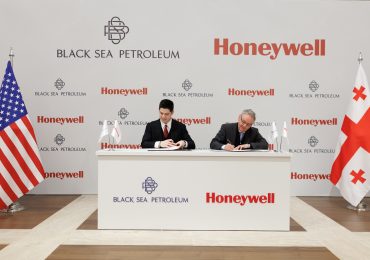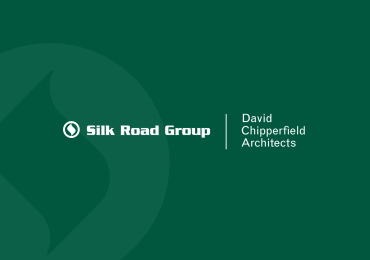Last week, a Dubai Chambers delegation visited Tbilisi with representatives from 15 Dubai-based companies exploring business opportunities in Georgia. On October 21, after a series of bilateral meetings between Dubai and Georgian companies, Dubai Chambers organized a business forum, Doing Business in Georgia, at Sheraton Metekhi Palace. Forbes Georgia spoke with Mr Salem Alshamsi, Executive Vice President of International Relations at Dubai Chambers, about the outcomes of the visit and the future of Dubai-Georgia business relations.
Mr Alshamsi, welcome to Georgia. Your delegation is visiting Tbilisi as part of your New Horizons Initiative, before travelling to Armenia. What brought you here? What makes the Georgian market stand out for Dubai companies?
Thank you for hosting me. Being in this city, I believe that Tbilisi, and Georgia in general, is a promising place. If I may, I’ll tell you why we’re doing these trade delegations.
It’s part of our wider commitment to our business community in Dubai to explore new markets for them, and the Georgian market is in close proximity. We’ve seen real progress in the past year when it comes to high-level relationships between our governments, and we align ourselves with the agreements and the foresight that the UAE has made with Georgia. We’ve seen the CEPA – the Comprehensive Economic Partnership Agreement – come into play, which has shown an increase in bilateral trade between Dubai and Georgia.
Looking at recent numbers, we’ve seen non-oil bilateral trade reach 761 million US dollars between Dubai and Georgia. We’ve seen an increase in the number of Georgian businesses in Dubai. There are now 116 Georgian businesses active in the city of Dubai, and 16 of them joined us in the first half of 2025, which is a promising number.
Coming back to the non-oil bilateral trade, that’s a 58% increase, which complements what’s happening in Georgia. So I see it as a promising market for our businesses, and Georgia’s geographical location as a connector hub between Asia and Europe plays a big role in these business opportunities.
What kind of collaboration opportunities do you see emerging between Dubai and Georgian companies?
Let me answer this from our perspective on the Georgian business community. I’ll tell you about Dubai’s wider agenda—Dubai 33. It’s a bold statement that Mohammed bin Rashid Al Maktoum, Vice President of the UAE, Prime Minister, and Ruler of Dubai, has set out, which aims to double the GDP of the Emirate of Dubai within a decade, starting in 2023 and ending in 2033. Dubai Chambers plays a big role in looking at different sectors that match up with this economic agenda.
Narrowing down to your specific question: as we’ve seen an increase in the ICT sector here in Georgia, for example, we understand that the traditional sectors will continue to grow, but we’d like to focus on the synergies. This is one synergy that we see, and we have the right platforms in Dubai.
Dubai Chambers specifically is a host that can benefit these sectors. For example, last week we concluded GITEX and Expand North Star, hosted by our sister organization – the Dubai Chamber of Digital Economy – which has become the largest startup event in the world. We hosted over 2,000 startups and over 1,200 investors with assets under management of over 1.1 trillion USD, and we’ve initiated different programs to help these startups. For example, the Founders HQ – a collaboration between the Dubai Chamber of Digital Economy and Dubai’s Department of Economy and Tourism – supports the startup ecosystem.
The aim of this hub is to make Dubai the capital for founders. We welcome all startups and founders to Dubai, facilitate their growth, and we have two main goals – turn 30 companies into unicorns and support 400 SMEs to scale up.
We want to see more of these startups coming from our region, from the UAE and specifically from Dubai. We look at the sectors that are reshaping the world, and we focus on these.
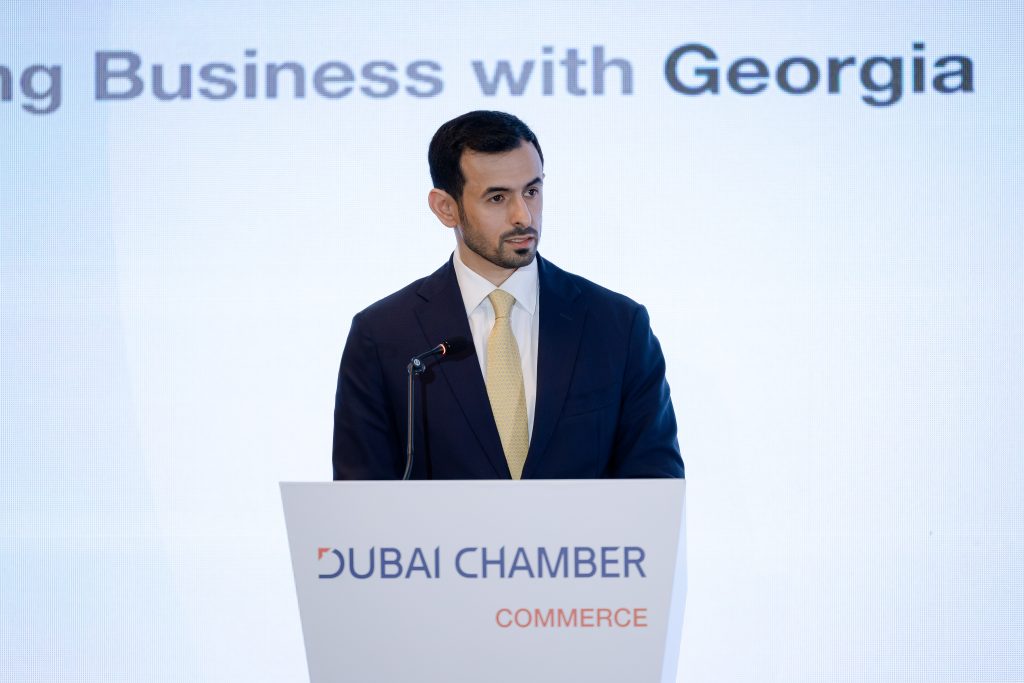
And what were the main outcomes from the bilateral meetings in Tbilisi?
Yesterday and today our business delegation met with different businesses in the city. They come from nine different sectors, but it’s not limited to those. We’re not going to stop our interaction with Georgian businesses just after these B2B meetings.
We see interest from Georgian businesses in the companies we brought with us. From our side as delegates from Dubai Chambers, we came here to hear more from the different stakeholders who joined us earlier today – to understand how we can enhance the relationship and their strategic outlook towards our region and Dubai specifically.
The trade mission has been promising so far, and so is the feedback I’ve received from the delegates.
Earlier, we had meetings with different stakeholders, including the Ministry of Economy of Georgia, the Chamber of Commerce, and the investment authority. Different ideas were brought into the conversation, and we see the main priority is increasing bilateral delegations between both sides.
This is something we need to work more on, and we agreed on doing so. At the moment, we see trade delegations focusing on major events in the city of Dubai, and we think it shouldn’t stop there. We should work throughout the whole year to offer different platforms for these delegations to explore business opportunities.
You mentioned how the trade between Georgia and Dubai has increased last year – the non-oil trade reached 2.8 billion during 2024, with an annual growth of 58%. Where did it come from, and how do you see this relationship going forward?
As we expected, we see high potential for growth. And the driver is the commitment of different stakeholders, driving this mutual understanding of both markets. From the business side and from the experience we’ve seen during the past couple of years, Dubai businesses look at what is new and where they can also help.
In Dubai, we understand that our success story isn’t ours alone. It’s a shared success story. How can we, as representatives of the business community in Dubai, help different markets or share the success that Dubai has had in the past years with others?
I think the growth is driven by ambition, the outward-looking relationship between our representatives and stakeholders in Dubai and different markets, and the welcoming attitude of the stakeholders in the respective markets, in this case, Georgia – where we’ve seen a lot of enthusiasm in welcoming us as a delegation – and also within the conversations we had earlier, enthusiasm between us and these stakeholders to do more. So this is a driver of success and growth.
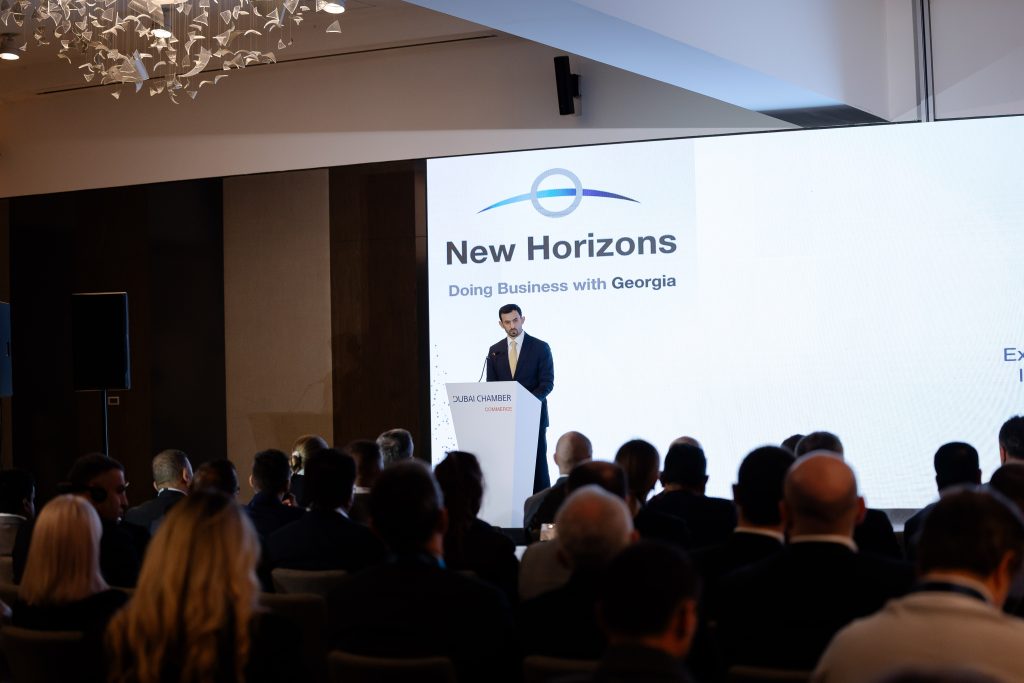
Speaking of the 116 Georgian companies which are registered as active members of Dubai Chamber of Commerce, how are you supporting their integration into the Dubai business ecosystem?
That’s a great question. We offer a concierge service at Dubai Chambers where our teams take requests from different businesses on how to, for example, set up a business in the city. So we take them through the journey in terms of providing information and helping them with the registration process.
We don’t stop there. This year, we introduced aftercare as well, which is something we focus on. We look at what hurdles these businesses face, if any, and help them overcome those – whether by connecting them to investors or helping them find buyers. But ultimately, Dubai Chambers is also helping them grow into different markets once they’re set up in Dubai. I think we’ve closed the circle by introducing the aftercare unit. Now it’s our job to help them explore different markets.
The unique thing about Dubai is that it can provide a launchpad for Georgian companies. What we mean when we say we’re a launchpad is that we’re a base from which Georgian companies can reach out to different markets. Part of our discussions today with Georgian stakeholders was how Georgian companies can benefit from Dubai’s location and relationships.
Dubai Chambers has 37 international offices in different markets. These offices are gateways to those markets. Let’s say a Georgian company comes to Dubai and sets up a business there, and this company wants to expand to Africa or Latin America. In such cases, we offer assistance. We have four offices in Latin America, for example, and seven in Africa.
We talked about Georgian companies doing business in Dubai, but if we flip the sides, which sectors in Georgia offer the strongest potential for investment or partnership for Dubai companies?
What I see is that there are many opportunities. But if we focus on, let’s say, three and make them successful, it’s going to pull the others as well. I mentioned earlier the ICT and the startup environment. I think this is something we should focus on – helping them navigate Dubai’s ecosystem and potentially finding investors as well.
Real estate is something that is booming here in Georgia, as I was told by the stakeholders, as well as F&B. F&B is really promising here in Georgia, including nuts and berries.
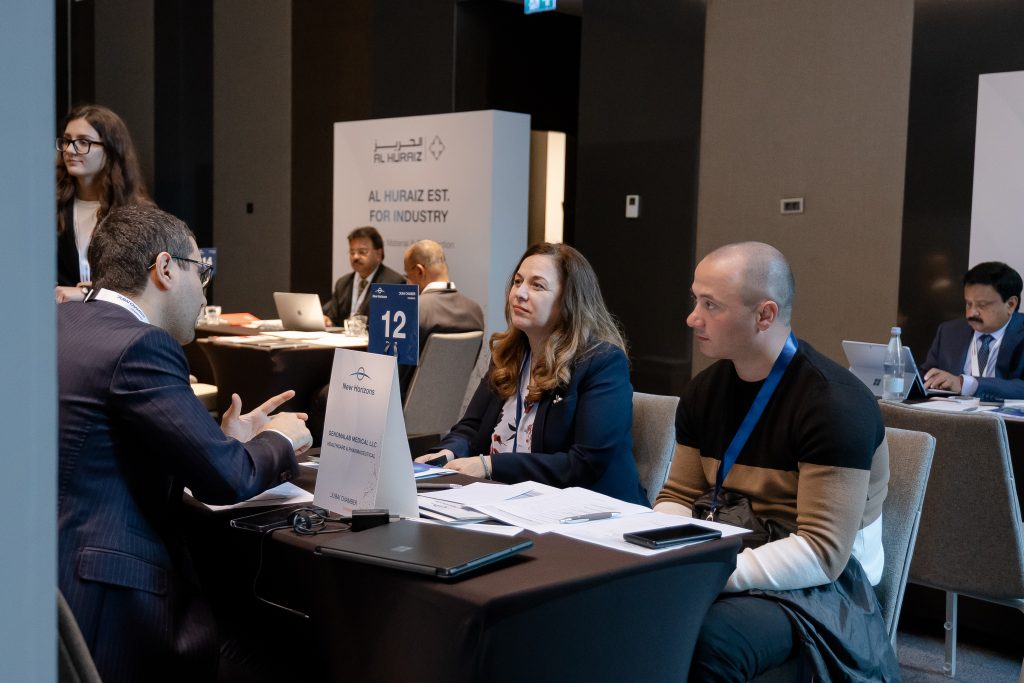
And last but not least, what message would you like to share with Georgian entrepreneurs and businesspeople who are considering expanding to Dubai?
We would like to, first of all, welcome them to the city to enjoy the hospitality of Dubai. But on the business side, we would like them to explore how Dubai Chambers can help them get into our ecosystem, our business community, and take advantage of what we offer. As I mentioned, the concierge services help them connect to different stakeholders within the business community. I think this is the message I would send to the business community, and I would like them to think of not stopping at Dubai but taking Dubai as a platform for them to expand to different markets.

